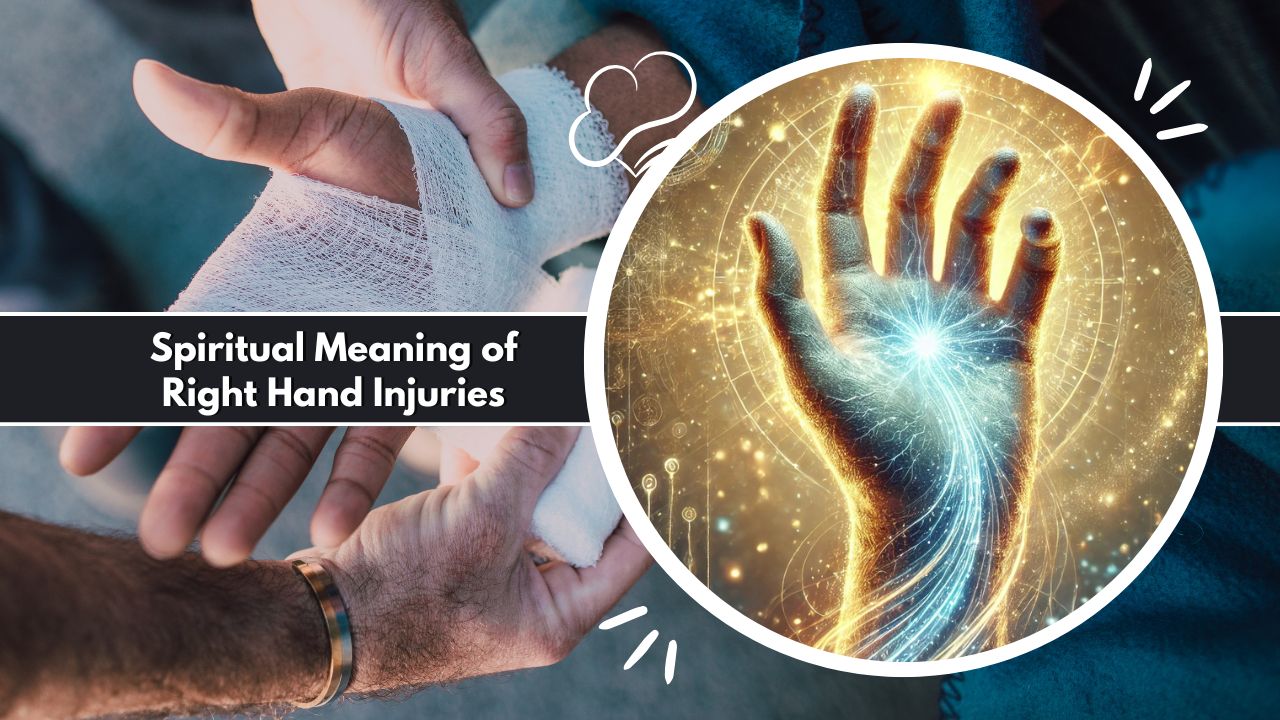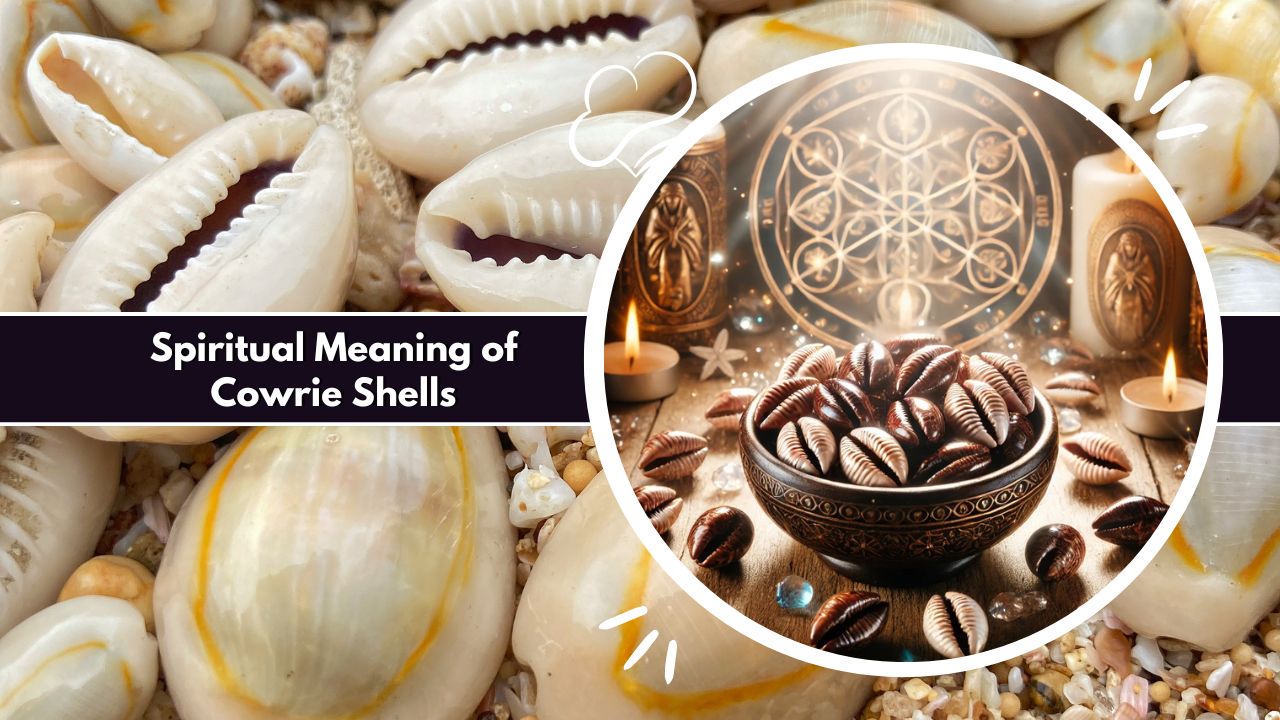What Does It Mean To Be Spiritual? The essence of spirituality is a concept that has long intrigued humankind, inviting the probing question: “What Does It Mean To Be Spiritual?” This enigma embraces a wide spectrum of interpretations, challenging us to consider the profound aspects of our existence.
To some individuals, spirituality signifies a deep-rooted belief in a higher power or divine entity. This form of spirituality often involves adhering to a set of moral and ethical principles that act as the guiding compass in their lives. Such principles may be gleaned from religious teachings, sacred texts, or their personal interpretation of divinity.
On the other hand, there are those who perceive spirituality in a somewhat different light. They view it as an intimate bond with the earth and its countless marvels, cherishing the interconnectedness of all living beings. This form of spirituality is characterized by a profound appreciation for the world’s natural beauty, which is seen as a conduit for achieving inner harmony and peace.
Alternatively, spirituality can be approached from a more introspective angle, where it represents a journey of self-discovery and self-actualization. Here, it involves the continual quest to delve into one’s innermost self, striving for deeper understanding and acceptance, while seeking to transcend the mundane aspects of daily life.
The realm of spirituality is vast and diverse, housing a rich tapestry of traditions, philosophies, and practices. If you’re curious about embarking on a spiritual journey, immersing yourself in this myriad of perspectives can be enlightening. Identify the path that echoes with your core values and personal inclinations.
Once you discover your spiritual resonance, you can begin integrating these practices into your life. This might take the form of participating in religious rituals, undertaking meditation or mindfulness exercises, or simply dedicating moments of quiet reflection in the embrace of nature.
Embracing spirituality is not a uniform process, but rather a personalized journey. It’s about exploring the depth of your existence and experiencing a connection that transcends the physical world. In the end, being spiritual is about discovering what gives your life a sense of meaning, purpose, and fulfillment.
Read Also: Tiger Cowrie Shell Spiritual Meaning
What Does Being a Spiritual Person Mean?
The question “What Does It Mean To Be Spiritual?” unravels an array of interpretations that is as diverse as humanity itself. Broadly, spirituality refers to a universal human experience—experiencing a sense of connection to something greater than oneself, often involving a search for meaning in life.
This quest often leads us to a belief in a higher power or God, which may take the form of an organized religion like Christianity or Islam or a personal belief system uniquely tailored to our experiences and perspectives.
Being a spiritual person for many involves an immersive experience of living in harmony with the universe, resonating with the natural world, and every life form inhabiting it. They find a sense of peace and belonging in the interconnectedness of all beings and elements of nature.
Spirituality for some involves fostering a deeply personal bond with the divine or the higher power. It is this unique relationship that sets spirituality apart from religion for many individuals. It is entirely possible for a person to be spiritual without subscribing to a specific religion; however, the intertwining nature of spirituality and religion often means that a religious person is inherently spiritual.
While religion usually offers a set structure of beliefs, rituals, and worship, spirituality gravitates towards the growth and evolution of the self. It’s an inward journey that can manifest in countless ways.
Some people find solace in prayer or meditation, enveloping themselves in a quiet space of introspection and mindfulness. For others, acts of service, philanthropy, and kindness towards their fellow beings become spiritual practices, bringing them closer to the divine essence they perceive.
Spirituality, for some, is a search for experiences that transcend the ordinary physical world. They may explore near-death experiences, or even psychedelic substances, as mediums to understand the boundaries beyond the physical realm.
The pursuit of spirituality is deeply personal and subjective, and there is no single “right” way to it. The path that brings you closer to your interpretation of the divine, to a heightened sense of purpose and understanding, is the path for you.
If you’re keen to deepen your understanding of spirituality, there is an abundance of resources at your disposal. From books encapsulating centuries of spiritual wisdom to modern websites and online communities fostering global spiritual discussions, you have countless avenues to explore. Engaging conversations with friends, family, or like-minded individuals about spirituality can also prove insightful.
In essence, to be spiritual is to embark on an inner journey towards self-understanding, self-improvement, and a deeper connection with the universe. It’s about searching for what gives your life depth, significance, and a sense of purpose.
Read Also: Black Butterfly Songs Spiritual Meaning
What is a Spiritual Person Like?
A spiritual person is one who has a profound connection with their intrinsic spirituality. This link manifests in multifarious ways, but a few common traits often emerge. These individuals frequently exhibit a powerful bond with nature, acknowledging its transcendent beauty and resonating with its inherent harmony.
They harbor a belief in a force larger than themselves, a cosmic entity or principle guiding the universe. A penchant for personal growth and introspection is also a defining characteristic. Those who are spiritual exhibit deep respect for all life forms and often engage in practices like meditation or yoga, finding them conduits to inner tranquility and self-awareness.
For some, spirituality implies living in harmony with their moral compass and ethical values; for others, it denotes a journey towards discovering personal meaning and purpose. The spiritual path is unique to each individual and lacks a universally applicable blueprint.
What Do You Mean Spiritual?
When someone professes to be spiritual, it can encompass an array of interpretations. For some, it might indicate a potent belief in God or a higher power. Alternatively, others may employ the term to denote their personal odyssey of self-exploration and growth.
There are also those who perceive spirituality as an all-encompassing principle, touching all aspects of life — relationships, career, environmental stewardship, and beyond. So, what does spirituality mean to you? Your answer would likely fall within these various descriptions.
It’s important to remember that there are no right or wrong perceptions of spirituality. What truly matters is discovering a spiritual path that resonates with you and helps imbue your life with meaning, purpose, and fulfillment.
If you’re uncertain about embarking on your spiritual journey, abundant resources are available to guide you. You might delve into books on spirituality or personal development, participate in workshops or classes, or even embark on spiritual retreats. The key is to maintain an open mind and willingness to explore until you discover the spiritual path that aligns with your inner being.
Read also: A Bear Holding a Rabbit Spiritual Meaning
How Do You Know You are Spiritual?
Recognizing one’s spiritual nature is an intimate, personal experience and varies greatly among individuals. However, there are some common indicators of a spiritual person. For instance, you may sense a profound connection with nature, experience a pervasive sense of peace and calm, or encounter mystical experiences on a regular basis.
You might also notice that others perceive you as more spiritually inclined compared to your peers. If you find yourself questioning your spiritual nature, it could be beneficial to seek guidance from a spiritual counselor or a religious leader. Their insights can provide direction and clarity on your spiritual journey.
In essence, “What Does It Mean To Be Spiritual?” is a question that beckons personal reflection, exploration, and discovery. It invites you to delve deeper into your core, to engage with the world around you, and to understand your place within the vast cosmos.
Understanding Spirituality
Spirituality is an intricate concept often linked with a sense of tranquility and a profound connection to an entity larger than oneself. It fundamentally relates to our engagement with the world and the type of individuals we aspire to become.
While some individuals derive their spiritual essence from religion, one doesn’t necessarily need to subscribe to the idea of a higher power to be spiritual. There are multitudes of ways to foster a connection with your spirituality.
For some, it could be through immersing themselves in the wonders of nature or expressing their creativity. Others might discover their spirituality in the act of helping others, volunteering their time for the greater good, or in practicing mindfulness, attuned to their thoughts and emotions in the present moment.
Spirituality varies significantly among individuals, but several common themes emerge – a sense of peace, a feeling of oneness with something larger, empathy towards others, living mindfully in the present, and the pursuit of becoming the best version of oneself.
Read Also: What Is The Spiritual Meaning Of Seeing A Monarch Butterfly?
The Advantages of Spirituality
There are numerous benefits of embracing spirituality, including the feelings of unity with something greater than oneself, experiencing tranquility and calmness, and fostering a deeper comprehension of the world and our place within it. Spirituality can also provide solace and resilience in challenging life circumstances, such as grieving or battling illnesses.
A spiritual practice is anything that allows us to connect with our inner selves and discover meaning in our lives. This could involve activities like meditation, prayer, journaling, or spending time in nature. It could also include creative expressions such as art or music. Regardless of the form it takes, a spiritual practice should be a routine activity that instills joy and fulfillment within us.
Navigating Towards a More Spiritual Self
“How to become more spiritual?” is a question with no definitive answer as spirituality carries a different connotation for each individual. Nevertheless, there are general strategies one can adopt to nurture their spirituality. This includes practicing mindfulness or meditation, forming a connection with nature, demonstrating kindness and compassion towards others, and cultivating a sense of gratitude.
One might also want to delve deeper into their religious or spiritual beliefs, or experiment with new spiritual practices that pique their interest. The key is to discover what resonates with you and aids in feeling more connected to something larger than yourself.
In essence, answering “What Does It Mean To Be Spiritual?” is a deeply personal journey that guides you towards self-discovery, inner peace, and an enhanced understanding of your place in the grand cosmic theatre.
What Does It Mean to Be Spiritual Vs Religious
The concepts of being spiritual and religious often create confusion. So, how do they differ? At a fundamental level, being religious typically involves identifying with a specific religion and partaking in its traditions and rituals. This could include attending religious services, praying, studying religious scriptures, and more. For many, religion forms a significant part of their identity.
On the other hand, spirituality generally pertains to a sense of connection with something grander than oneself — an awe or marvel about the vast expanse of the universe, for instance. It often involves practices such as meditation or mindfulness that help establish a deeper connection with the inner self. Affiliation with any specific religion isn’t a prerequisite for being spiritual. While there’s a significant overlap between the two, one can be spiritual without being religious, and vice versa. It’s a personal choice how one defines and relates to these terms.
Read Also: What Is The Spiritual Meaning Of Seeing a Grasshopper
The Essence of Being Spiritual but Not Religious
In recent years, the phrase “spiritual but not religious” has gained substantial traction. It’s often used to define individuals who possess a strong sense of spirituality but don’t associate themselves with any specific religion. Defining what it means to be spiritual but not religious is multifaceted.
For some, it implies a personal connection with God or a higher power, independent of any organized religion. For others, it may be a route to sync with their inner selves and the natural world around them, focusing less on external beliefs or rules. Irrespective of the definition, numerous people identify as spiritual but not religious. And for many, this constitutes a fulfilling and authentic way to navigate life.
Spirituality According to the Bible
The Bible provides extensive insights into what it means to be spiritual. In the Old Testament, “spiritual” is used to characterize someone who is profoundly connected to God. This is evident in passages like Psalm 51:10, which says, “Create in me a pure heart, O God, and renew a steadfast spirit within me.”
In the New Testament, “spiritual” acquires an evolved meaning. It refers to someone who has been reborn through the Holy Spirit, as suggested in John 3:3-5. This spiritual rebirth grants us a new nature that yearns to serve God (Romans 8:5-8).
So, what does it mean to be spiritual according to the Bible? It involves fostering a relationship with God through Jesus Christ. It implies possessing a desire to honor Him and abide by His principles.
In essence, pondering over “What Does It Mean To Be Spiritual?” invites introspection and a personal journey towards finding a sense of higher purpose, inner peace, and deeper connection with oneself and the cosmos.
What Does It Mean to Be Spiritually Minded
The question, “What does it mean to be spiritually minded?” may elicit various responses, reflecting the diverse perspectives people have on spirituality. For some, being spiritually minded implies having a profound connection with a higher power, engaging in consistent religious practices, or embracing the habit of prayer.
Conversely, others perceive spirituality as an internal sense of tranquillity or an awareness of being connected to a reality larger than oneself. The benefits of being spiritually minded are numerous. Individuals with a spiritual inclination often describe feelings of peace, connection, and grounding that transcend those of their non-spiritual counterparts.
Research indicates that spiritual people tend to have better mental and physical health. They also experience reduced stress and anxiety levels, coupled with a more optimistic outlook on life. If you aspire to explore your spirituality, there are multiple avenues to do so.
You could delve into various religions and spiritual traditions, or chart your own course by amalgamating philosophies and practices that resonate with you. The key lies in discovering what works best for you and brings you joy – spirituality doesn’t conform to a wrong or right approach!
Read Also: Cat Sleeping on My Chest Spiritual Meaning
Christian Spirituality Explored
The term spirituality, although broad, is frequently associated with religion. However, it extends beyond religious practices to embody a personal relationship with God.
Christianity is predicated on the belief in a monotheistic God, the creator of the universe and all beings. Christians believe in Jesus Christ as their Savior, who sacrificed himself to absolve their sins. The faith also holds that Jesus was resurrected and ascended to heaven, where he resides next to God the Father.
Christians are tasked with following Jesus Christ’s teachings, as encapsulated in the Bible, thereby fostering a closer relationship with God through prayer, worship, and service to others.
A spiritual person, in the Christian context, is one who is committed to following Jesus Christ and nurturing a relationship with God. They acknowledge their imperfections and their need for God’s guidance to lead a life that aligns with His will. Their spiritual growth is facilitated by studying the Bible, regular prayer, attending worship services, joining religious study groups or classes, and serving others.
In Conclusion
To embark on a spiritual journey, one must first understand what spirituality encompasses. Spirituality refers to an interest in the human soul or spirit, transcending materialistic concerns. It’s often perceived as a lifestyle that nurtures all aspects of our beings, including our bodies, minds, and emotions.
Spirituality can be expressed through diverse practices, such as prayer, meditation, yoga, or simply by spending time in nature. There aren’t any definitive answers in spirituality; it’s a personal journey, unique to each individual.
At its essence, “What Does It Mean To Be Spiritual?” points to the aspiration to connect with something greater than ourselves, finding peace and understanding amid turmoil, tapping into our inner wisdom, and listening to our intuition. Spirituality can guide us in making wiser choices, feeling more connected to others and the world, and discovering a deeper sense of purpose and meaning.







